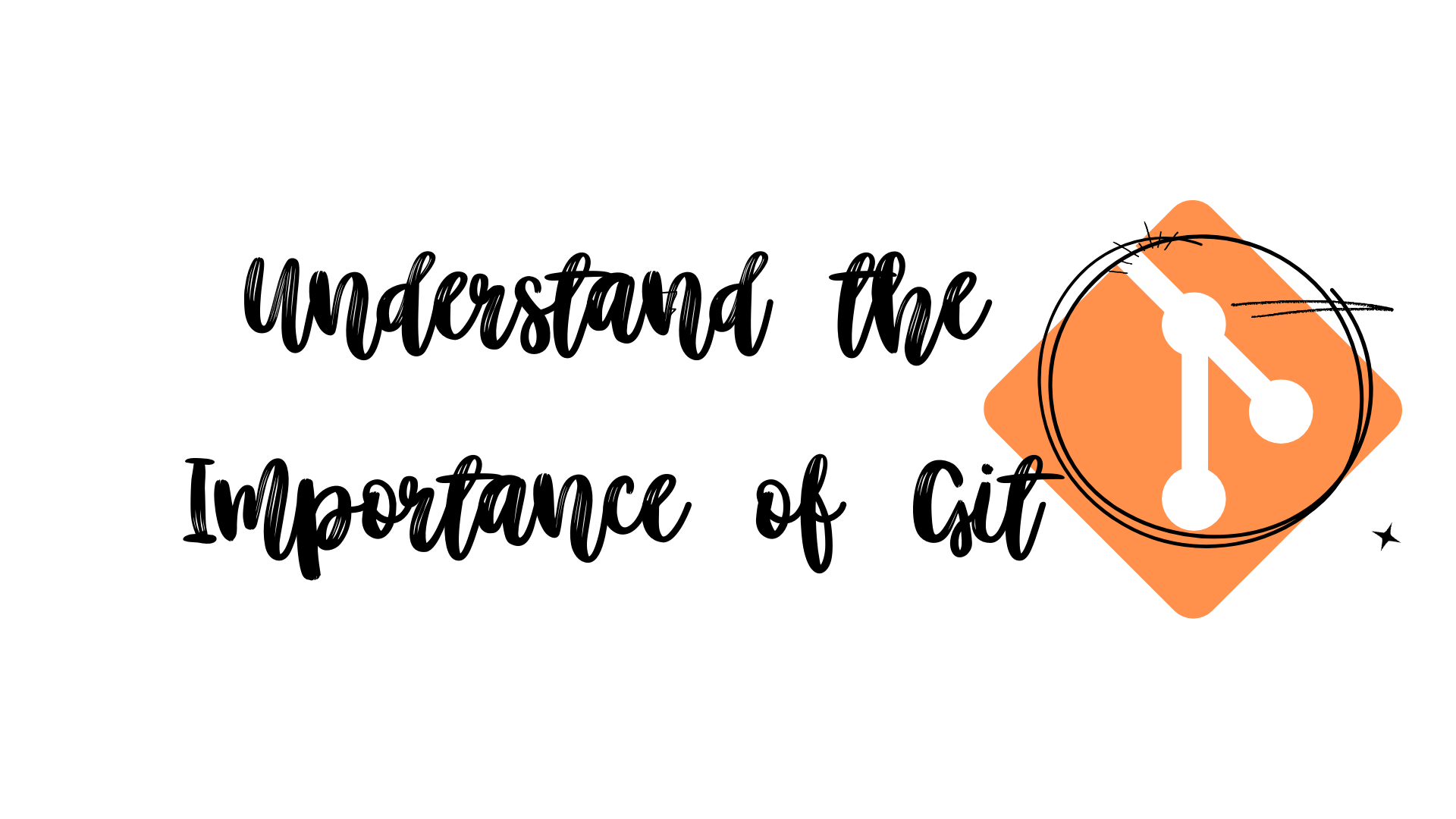The Importance of Git for Developers !
 ganesh mondal
ganesh mondal
In the evolving world of software development, having the right tools is essential. One such indispensable tool is Git, a distributed version control system. Whether you are a beginner or an experienced developer, mastering Git can significantly enhance your productivity and collaboration.
What is Git?
Git is a version control system that enables multiple people to work on a project simultaneously without overwriting each other’s changes. It tracks changes in the source code, allowing developers to revert to previous versions if necessary.
Key Benefits of Using Git
1. Version Control 📜
Track Changes: Git meticulously records every change made to the codebase, which is crucial for identifying when and why changes were made.
Revert Changes: If an error is introduced, you can easily revert to a previous, stable version of the code.
2. Collaboration 🤝
Branching and Merging: Developers can create separate branches to work on new features or fixes without impacting the main codebase. These branches can be merged back once the changes are tested and approved.
Pull Requests: Team members can review and discuss changes before they are merged, ensuring better code quality and shared knowledge.
3. Backup and Restore 💾
- Remote Repositories: Hosting the code on remote repositories like GitHub or GitLab ensures that your code is backed up. This protects against data loss due to local hardware failures.
4. Integration with CI/CD 🚀
- Continuous Integration/Continuous Deployment: Git integrates seamlessly with CI/CD tools. Automated tests and deployments can be triggered with each commit, ensuring that the codebase is always in a deployable state.
5. Open Source and Community Support 🌍
Widely Adopted: Git is used by millions of developers worldwide. This extensive adoption means there are abundant resources, tutorials, and community support.
Open Source: Being open source, Git is free to use, and its development is driven by a large community of contributors.
Git Workflow: An Overview
1. Clone the Repository 🏁
Start by cloning the repository to your local machine:
git clone https://github.com/your-repo.git
2. Create a Branch 🌿
Create a new branch for your feature or bug fix:
git checkout -b new-feature
3. Make Changes and Commit ✍️
Make your changes, stage them, and commit:
git add .
git commit -m "Add new feature"
4. Push Changes 📤
Push your changes to the remote repository:
git push origin new-feature
5. Create a Pull Request 🛠️
Create a pull request for your changes to be reviewed and merged into the main branch.
Git Commands: A Quick Reference
git init: Initialize a new Git repository.git clone: Clone an existing repository.git status: Check the status of your files in the working directory.git add: Stage changes for commit.git commit: Commit staged changes.git pull: Fetch and merge changes from the remote repository.git push: Push changes to the remote repository.git branch: List, create, or delete branches.git checkout: Switch branches or restore working directory files.
Conclusion
Git is more than just a tool, it's a must fundamental skill for developers. Its enables ability to handle version control, facilitate collaboration, ensure data safety, and integrate with other development tools makes it essential in modern software development. By mastering Git, developers can improve their workflow, contribute more effectively to team projects, and ultimately deliver better software.
Whether you're working on a solo project or as part of a large team, embracing Git will undoubtedly enhance your development process. So, start using Git today and experience the difference it makes!
What Coming Next
In the upcoming blogs,
We will disscuss more on "impact of Git on an Open source projects".
Why students should adopt this tool early from college days?
How a Git can be useful in crowd sourcing?
We will start an open-source mini project for all students to contribute.
and much more to explore...
Hope you find this blog informative and helpful. If you have any questions or need further assistance with Git, feel free to drop a comment below! Happy coding! 💻😊
Subscribe to my newsletter
Read articles from ganesh mondal directly inside your inbox. Subscribe to the newsletter, and don't miss out.
Written by
